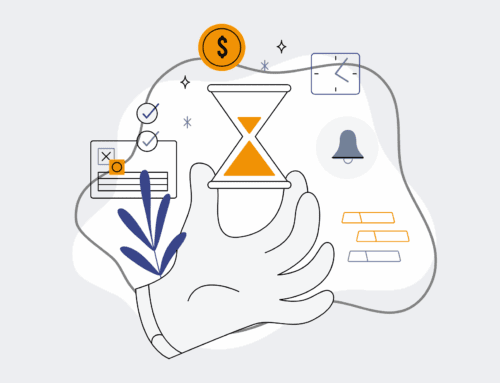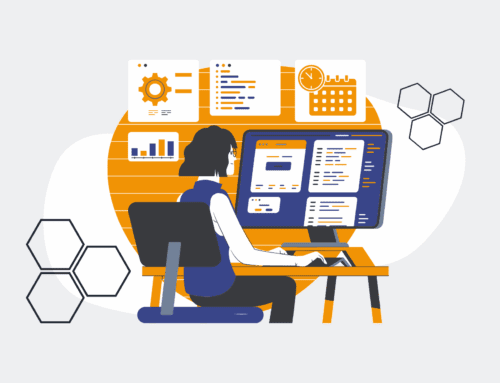5 Unexpected Ways AI Can Boost New-Hire Morale and Connection from Day One
The journey of a new employee within any organization is a critical period, often fraught with information overload, uncertainty, and the inherent challenge of integrating into a new culture. Traditionally, HR and leadership teams have relied on manual processes, mentorship programs, and structured orientations to ease this transition. While these methods remain vital, the advent of Artificial Intelligence offers unprecedented opportunities to supercharge these efforts, fostering an environment where new hires feel supported, understood, and deeply connected from their very first day.
At 4Spot Consulting, we specialize in leveraging automation and AI to eliminate bottlenecks and optimize operational excellence, and we’ve seen firsthand how intelligently deployed AI isn’t just about efficiency; it’s about enhancing the human experience. Imagine a workplace where AI proactively addresses new hires’ anxieties, personalizes their learning journey, and even facilitates organic connections within the team. This isn’t science fiction; it’s the present reality when AI is strategically integrated. This article explores eight unexpected, yet profoundly impactful, ways AI can transform new-hire morale and connection, turning initial apprehension into immediate engagement and long-term loyalty for your team.
1. AI-Powered Personalized Onboarding Journeys
One of the biggest challenges in onboarding is its often one-size-fits-all approach. Every new hire comes with a unique background, different learning styles, and varied prior experiences. AI can revolutionize this by creating truly personalized onboarding pathways. Imagine an AI system that, after a quick pre-start questionnaire or by analyzing their resume and job description, tailors a dynamic content stream of company policies, departmental overviews, and role-specific training modules. It can prioritize information based on what’s most relevant to their immediate tasks, rather than overwhelming them with everything at once. This personalization isn’t just about efficiency; it demonstrates to the new hire that their individual needs are recognized and valued. By presenting information in digestible, relevant chunks, AI reduces cognitive load, minimizes frustration, and ensures that the new hire feels supported in their specific journey, boosting their confidence and engagement from day one. This targeted approach prevents disengagement and shows a clear path forward, making them feel like a valued individual, not just another number.
2. Instant AI-Driven FAQ and Knowledge Base Access
New hires have a barrage of questions: “How do I access the VPN?”, “Where can I find the expense policy?”, “Who do I contact for IT support?”. Often, these questions fall to busy managers or HR staff, leading to delays and potential frustration. An AI-powered chatbot, accessible 24/7, can be a game-changer here. Trained on your company’s internal documentation, policies, and FAQs, this chatbot provides instant, accurate answers to common queries. This not only frees up valuable HR and managerial time but, more importantly, empowers the new hire. They don’t have to feel shy about asking “trivial” questions or wait for someone to be available. The immediate access to information builds confidence, reduces anxiety, and helps them quickly become self-sufficient. This fosters a sense of independence and proactive problem-solving, contributing significantly to their early morale and reducing the typical onboarding friction. It’s like having a patient, all-knowing mentor available on demand, ensuring they never feel stuck.
3. Proactive AI for Sentiment Analysis and Check-ins
Understanding how new hires are truly feeling can be difficult, especially in larger organizations or remote settings. AI can offer a subtle yet powerful solution through sentiment analysis in anonymized feedback channels or structured check-ins. Imagine an AI system that, after a few weeks, prompts new hires with non-intrusive questions about their workload, understanding of responsibilities, or feelings of belonging. It can analyze their responses, identifying potential signs of confusion, dissatisfaction, or even budding enthusiasm. This isn’t about surveillance; it’s about proactive support. If the AI detects a recurring theme of difficulty in a specific area, it can alert HR or the manager to intervene with targeted resources or a personal check-in. This demonstrates that the company cares about their well-being and success beyond just ticking boxes, fostering a deeper sense of connection and psychological safety, and ensuring potential issues are addressed before they escalate into morale killers.
4. AI-Facilitated Peer Connection and Buddy Matching
Building connections is paramount for new-hire integration, but it can be awkward and left to chance. AI can intelligently facilitate these connections. By analyzing data points like roles, departments, interests (from optional surveys), and even personality profiles (if available and consented to), AI can suggest suitable “buddies” or peer mentors. Beyond a simple match, the AI could even suggest initial icebreaker topics or commonalities to kickstart conversations. Furthermore, AI can identify potential internal “champions” or experts in areas a new hire might be interested in, making recommendations for informational interviews or networking opportunities. This takes the guesswork out of forming early relationships, ensuring new hires don’t feel isolated. By proactively connecting individuals based on shared ground, AI helps forge organic bonds that are crucial for both professional growth and personal belonging, significantly boosting morale and reducing attrition rates linked to a lack of connection.
5. Automated Skill-Gap Identification and Learning Path Recommendations
Feeling competent and continually growing is a huge morale booster. AI can play a critical role here by identifying skill gaps early on and recommending precise learning opportunities. By analyzing a new hire’s resume, job description, initial performance metrics (where applicable), and even self-assessments, AI can pinpoint areas where a new hire might need additional training or development. It can then curate a personalized list of internal resources, external courses, or even suggest specific colleagues to shadow. This isn’t just about filling gaps; it’s about showing the new hire that the company is invested in their long-term growth. This proactive approach to professional development makes new hires feel valued, provides clear avenues for improvement, and ensures they’re quickly up-skilled to contribute effectively. This commitment to their professional journey fosters loyalty and a deep sense of connection, knowing the organization supports their advancement.
6. AI for Cultural Immersion and Value Reinforcement
Beyond job-specific training, understanding and embodying company culture is vital for belonging. AI can facilitate this immersion in engaging ways. Imagine an AI-powered virtual tour of your company’s offices, complete with historical facts, insights into departmental functions, and introductions to key leaders—all delivered interactively. Furthermore, AI can curate stories, anecdotes, and examples of company values in action, presenting them to new hires in an accessible, engaging format. For example, if “innovation” is a core value, the AI could highlight recent projects or employee contributions that exemplify it. This structured yet dynamic introduction to the company’s ethos helps new hires quickly grasp the unwritten rules and shared beliefs, making them feel like part of the tribe sooner. It reinforces the organizational identity, making them feel connected to a purpose larger than their individual role, which is a powerful driver of morale.
7. AI-Assisted Feedback Loops and Performance Check-ins
Early, constructive feedback is crucial for new hires to adapt and excel. However, managers are often strapped for time. AI can streamline and enhance this process without replacing human interaction. An AI tool can help managers structure their feedback sessions, suggesting key performance indicators to discuss based on the new hire’s role and time with the company. It can also help aggregate informal feedback from various touchpoints (e.g., project collaboration tools) to provide a more holistic view. For new hires, AI can offer anonymous channels for them to provide feedback on the onboarding process itself, allowing HR to make real-time adjustments. This two-way, AI-assisted feedback loop ensures that new hires feel heard and supported, and that their early efforts are recognized and guided, preventing misunderstandings and fostering a sense of continuous improvement and psychological safety within their new role and team.
8. Predictive AI for “Hot Spot” Identification and Retention Risk
While often used for broader retention, predictive AI can be honed to identify early indicators of disengagement among new hires specifically. By analyzing data points such as participation in onboarding activities, engagement with internal communication platforms, time taken to complete initial training, or even sentiment from anonymized feedback, AI can flag new hires who might be at risk of feeling disconnected or dissatisfied. This isn’t about judgment; it’s about proactive intervention. If AI identifies a “hot spot” – a new hire who hasn’t completed crucial training or hasn’t engaged with their buddy – it can trigger an alert for HR or their manager to conduct a personalized, human check-in. This enables targeted support before issues escalate, demonstrating to the new hire that the company is invested in their success and well-being. This proactive care prevents early attrition and strengthens the bond between the new hire and the organization.
The integration of AI into your new-hire onboarding and connection strategies is no longer a futuristic concept; it’s a strategic imperative for organizations aiming to build a highly engaged, resilient, and thriving workforce. From personalized learning paths to proactive sentiment analysis and intelligent peer matching, AI offers a suite of tools that elevate the human experience, making new hires feel valued, understood, and seamlessly integrated into your team from the moment they say “yes.” By embracing these unexpected applications of AI, you’re not just streamlining processes; you’re building a foundation of strong morale and deep connection that drives long-term success and employee loyalty. The goal isn’t to replace human interaction but to augment it, allowing your HR and leadership teams to focus on the high-value, empathetic interactions that truly define a positive workplace culture.
If you would like to read more, we recommend this article: The Intelligent Onboarding Revolution: How AI Drives HR Excellence and New-Hire Success







